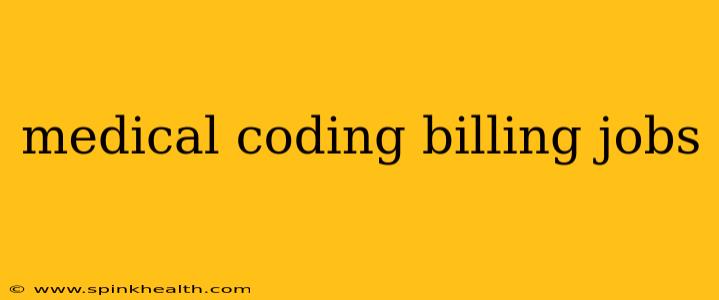The bustling world of healthcare isn’t just about doctors and nurses; it thrives on a silent, essential force: medical coders and billers. These professionals are the unsung heroes, translating medical procedures and diagnoses into standardized codes, ensuring accurate billing and smooth financial operations for healthcare providers. If you're drawn to the intricacies of healthcare systems and have a knack for detail, a career in medical coding and billing might be the perfect fit. Let's delve into this fascinating field, exploring its nuances and uncovering its rewarding aspects.
My name is Sarah, and I've spent the last 10 years working in various roles within the medical billing and coding industry. I've seen firsthand the impact these professionals have and I want to share my experience and knowledge with you today.
What Does a Medical Coder Do?
Imagine being a translator, but instead of languages, you’re translating medical procedures and diagnoses into a universal language understood by insurance companies. That's precisely what a medical coder does. They use standardized coding systems like the International Classification of Diseases (ICD) and Current Procedural Terminology (CPT) to represent each patient encounter accurately. This meticulous work ensures that healthcare providers receive proper reimbursement for their services. The accuracy and precision required in this role are paramount, as even a small error can impact a provider's revenue.
What are the different types of medical coding jobs?
Medical coding isn't a monolithic field; there's a variety of niches within it. You could specialize in:
- Inpatient coding: Focusing on hospital stays and procedures.
- Outpatient coding: Dealing with clinic visits and ambulatory surgeries.
- Physician coding: Specializing in the coding practices of doctors' offices.
- Specialty coding: Developing expertise in specific medical areas like cardiology or oncology.
The specialization you choose depends on your interests and the type of healthcare setting you prefer to work in.
What Does a Medical Biller Do?
Medical billers are the financial architects of the healthcare system. They take the coded information created by medical coders and transform it into insurance claims. This involves submitting claims to insurance companies, following up on outstanding payments, and managing patient accounts. They are responsible for ensuring timely reimbursements and resolving billing discrepancies. A medical biller’s keen eye for detail, strong organizational skills, and understanding of insurance regulations are critical to success in this role.
What skills do I need for a medical billing job?
To thrive as a medical biller, you'll need proficiency in:
- Insurance regulations: A comprehensive understanding of various insurance plans and their reimbursement policies is essential.
- Medical terminology: While not as in-depth as a coder's knowledge, a foundational understanding is needed.
- Software proficiency: Expertise in billing software and electronic health records (EHR) systems is crucial.
- Excellent communication skills: Interacting with patients, insurance companies, and colleagues requires clear and effective communication.
How Much Do Medical Coding and Billing Jobs Pay?
The salary range for medical coding and billing jobs varies depending on experience, location, and specialization. Entry-level positions often start at a certain amount, while experienced professionals with certifications can command significantly higher salaries. Many factors contribute to earning potential within this field.
What Education and Certification is Needed for Medical Coding and Billing Jobs?
While a formal degree isn't always mandatory, obtaining relevant certifications significantly enhances job prospects. Certified Professional Coder (CPC) and Certified Billing and Coding Specialist (CBCS) are highly regarded credentials that demonstrate proficiency in the field. Many community colleges and vocational schools offer comprehensive programs that provide the necessary training and prepare students for certification exams.
What are the different certification options for medical coding and billing?
Several organizations offer recognized certifications. Researching and choosing a certification that aligns with your career goals and specialization is important. These certifications often involve examinations that test knowledge and skills.
Is a Career in Medical Coding and Billing Right for Me?
If you're detail-oriented, enjoy problem-solving, and possess strong organizational skills, a career in medical coding and billing might be a perfect fit. The field offers a blend of analytical work and patient interaction (depending on the role), ensuring a dynamic and fulfilling work experience. The demand for these professionals is consistently high, ensuring a stable and promising career path in the ever-evolving healthcare industry.
This journey into the world of medical coding and billing hopefully clarifies the opportunities and challenges within this rewarding career field. Remember to conduct thorough research based on your specific interests and location to make an informed decision. The healthcare industry is waiting for your unique skills and dedication.

